Different Types Of Metal Barn Anchors And When To Use Them
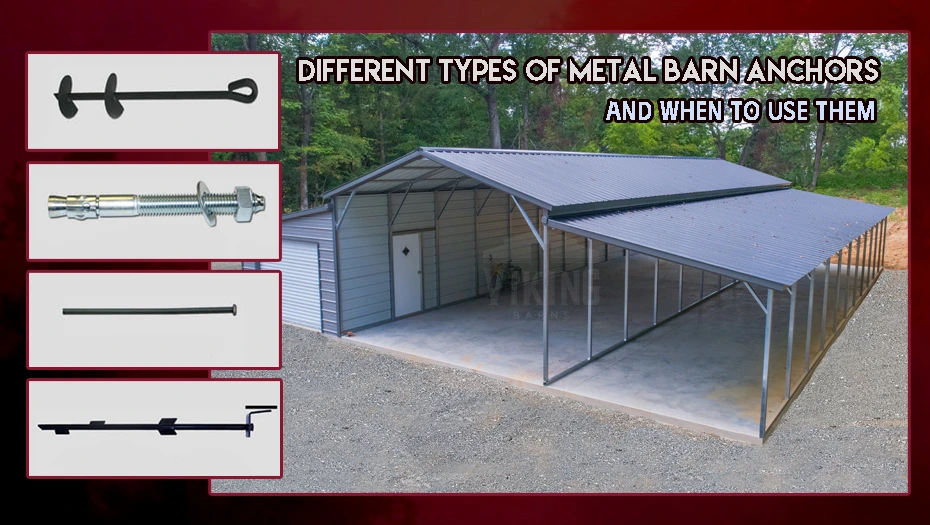
Often, metal barns & building buyers wonder how their structure will perform under strong wind conditions and will these structures be able to bear heavy snow loads & seismic activities. So, instead of wasting time worrying about what can happen, let’s see how strong metal structures are & how you can further increase their structural stability. One way to increase strength is by choosing the right anchor for metal building. Let’s see how!
What Are Steel Barn Anchors?
An anchor secures a metal structure to its foundation. It helps distribute the loads & stresses acting on the building to enhance durability & longevity.
5 Reasons Why Metal Barn Anchors Are Essential
- They ensure the stability & safety of the building.
- Anchors ensure the building stays put & does not shift or move during extreme weather events.
- Many local building codes & zoning regulations require proper anchoring for custom metal barns & garages to meet safety standards.
- Anchors resist wind uplift in areas prone to high-speed winds. At Viking Barns, we provide certified steel buildings that can withstand up to 180 mph of wind.
- A stable, anchored farm barn ensures doors, windows, and other components are working smoothly without any misalignment.
Types Of Metal Barn Anchors
There are four main types of anchors that are usually used for steel buildings. We have discussed them below briefly.
I. Rebar Anchors
What Is It: It’s a U-shaped or L-shaped rod that is driven into the base to provide reinforcement.
How It Works: The Rebar anchor is embedded in the base at specific points when laying the foundation. Once the base is set, it becomes an integral part of the foundation.
Best Use: gravel or soil-type foundations
Pros: Cost-effective, versatile, resistant to pull-out forces, and offers better load distribution.
Cons: not ideal for sandy areas, risk of corrosion, limited adjustability.
II. Mobile Home [Auger] Anchors
What Is It: It’s a device that holds a structure down onto a pier foundation and prevents the building from lifting or moving.
How It Works: These auger anchors are driven into the ground. The auger-like ends screw into the soil for a firm grip.
Best Use: ideal for soil & dirt type of foundations
Pros: stronghold, no need for a concrete base, adjustable, easy to install.
Cons: It requires installation tools, is not suitable for rocky/ sandy soil, needs maintenance, has a limited load capacity, and may get loose with time.
III. Concrete Anchors
What Is It: Also known as a concrete wedge anchor, it best works with concrete slabs & piers. It requires a minimum depth of 3.75 inches.
How It Works: Holes are drilled into the concrete slab, and anchors are inserted. As the bolts are tightened, the anchor expands into the concrete, creating a secured hold.
Best Use: concrete & clement type of foundations
Pros: very secure, high strength, best load-bearing ability, resistant to environmental factors, low maintenance.
Cons: complex installation process, higher initial cost, need for a concrete base, special equipment needed to install, and concrete anchors are heavy to handle.
We provide an option for extra mobile home anchors & concrete brackets with our metal barns & buildings. You can customize it as per the size, weight, & height of the steel livestock barn or workshop.
IV. Asphalt Anchors
What Is It: These are spiked rods driven through the asphalt base into the soil to provide a secured hold.
How It Works: Spiked rods are hammered or drilled into the asphalt base up to the soil beneath. These anchors grip the asphalt & soil, creating a stable anchor point.
Best Use: designed for asphalt foundations
Pros: secure hold, easy to install, cost-effective, no need of concrete slab, portable, minimal disruption to the existing asphalt surface.
Cons: It requires professional installation, has limited load-bearing ability and corrosion risk, needs regular maintenance, and is not suitable for heavy-duty applications.
How Deep Should Be An Anchor For Steel Barn
The depth of foundation anchors depends on several factors, but in general, it is about 12 to 18 inches deep into the ground to provide ample stability.
Soil Conditions: Soil type plays an important role in deciding how deep an anchor would be. For example, clay or slit soil expands & contracts with moisture changes. Thus, anchors must be deeper & secure. Similarly, for less stable sandy & gravel soil, anchors must be deeper to ensure secure hold.
Barn Size & Weight: A larger size barn requires more anchors & stronger materials like 12 gauge steel buildings to ensure stability. For a heavier & taller structure, more robust & deeper anchors are needed to support additional weight.
Wind Loads: Wind can exert pressure on metal farm barns & buildings like carports. Hence, one has to factor in local wind speed, direction, the building’s height, shape, & placement, and weather conditions to know how close anchors must be & how deep they should be.
Local Building Codes: These are a set of pre-defined regulations that vary with location. Some codes may dictate minimum depth & type of anchor for steel barns.
Factors To Consider When Choosing Anchor For Metal Building
Foundation Type: It is crucial to match your anchor with the correct foundation. For instance, an asphalt foundation can only have asphalt anchors, and for concrete slabs, concrete anchors or rebar are generally used. Avoid common site preparation mistakes when installing steel barns, such as not having a permit, lousy site prep, incorrect anchor, and wrong base.
Weather Conditions: Windy, heavy snow areas require a more robust hold to the ground. The seismic activity of your region will also play a role in determining which anchors & how many must be placed. Ignoring local weather patterns can lead to unstable structures. Ensure to have correct insulation for steel farm buildings for temperature control & avoid moisture & humidity-related damage.
Building Size & Weight: A large building or taller metal structure will need more support than smaller metal outdoor sheds, so multiple strong anchors are needed in this case to distribute the load evenly. Meanwhile, the lightweight structure needs fewer anchors for adequate support.
Proper Installation: It is necessary to install anchors correctly. They must be straight into the ground and deep as needed to ensure compliance with local building regulations & proper stability. Choose the correct base when preparing a metal barn installation site for maximum stability. If you choose to DIY, be sure to follow manufacturer guidelines carefully to avoid any issues.
Budget: Some anchors are more affordable than others; for example, a rebar anchor will cost less than a concrete one. There are high-end options, such as helical anchors or custom-engineered anchors, which may be more expensive but will offer higher stability & better performance against wind & snow.
Ensure Your Metal Barn Stands Strong With The Right Anchors Today
With different anchors suiting different types of soil base & foundation, it is crucial to know the correct one for your farm barn, garage, or carport. That’s where our metal building experts can guide you in choosing the right foundation for the steel structure you have selected. You can call us at (704) 579-6966 for a free quote on your custom farm building today!
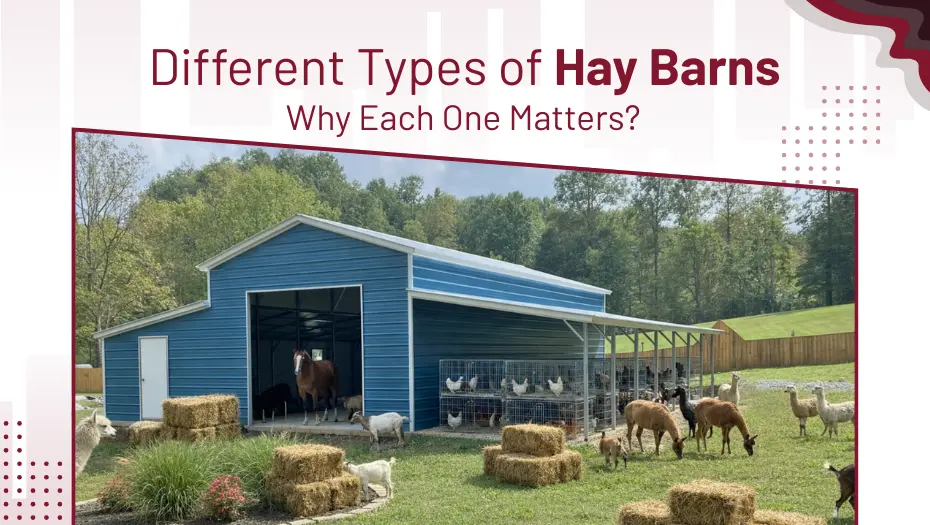

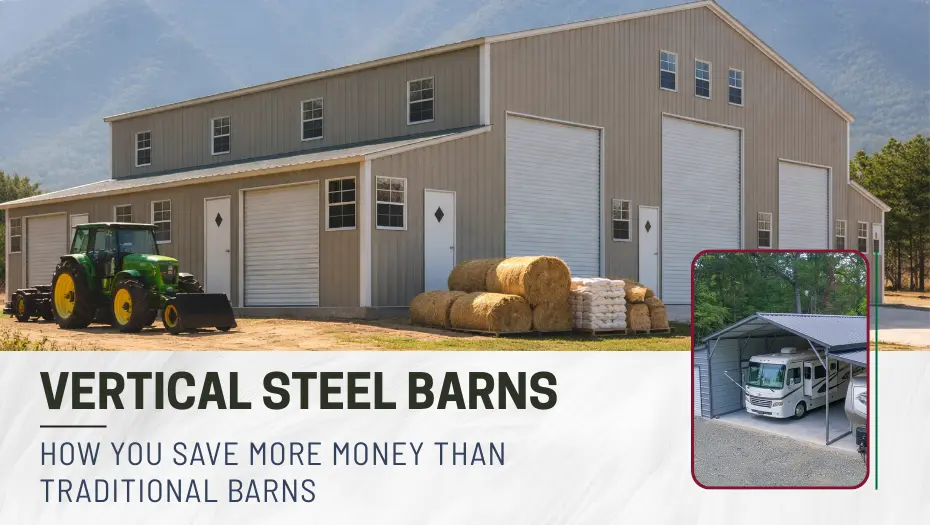
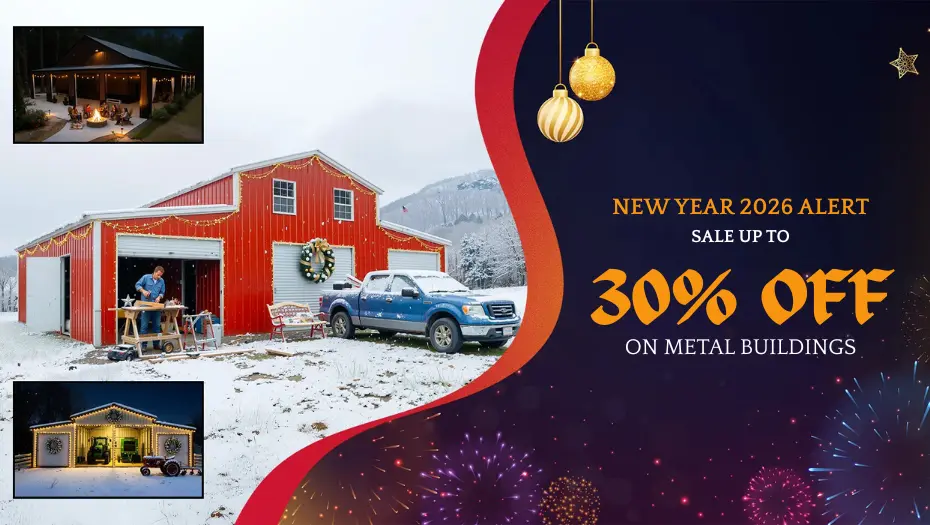
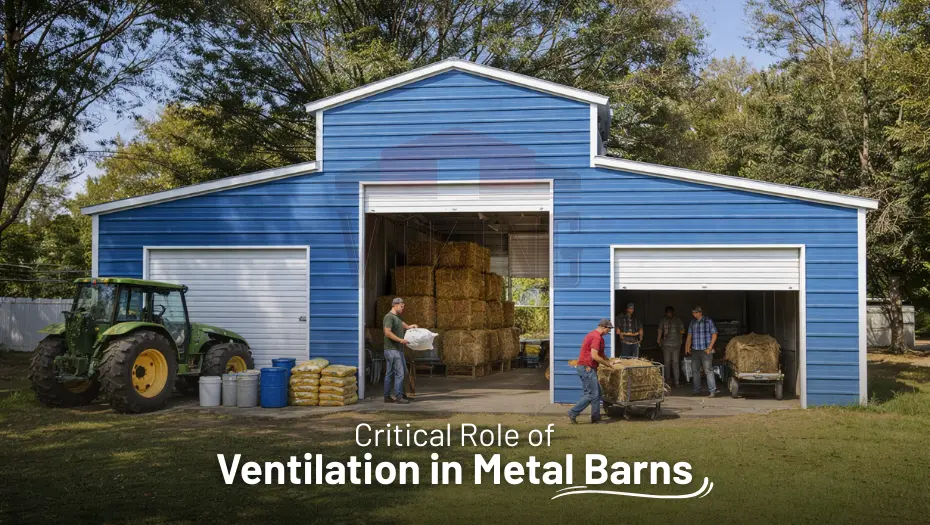
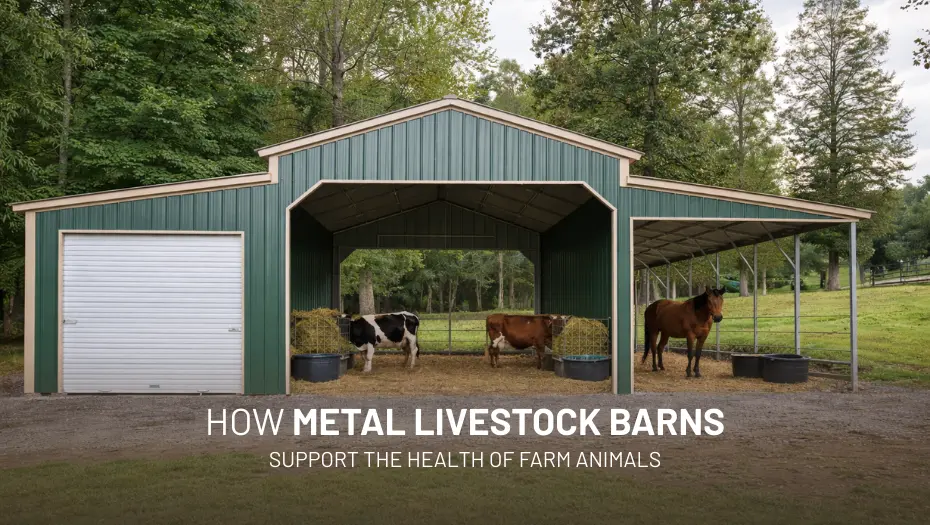

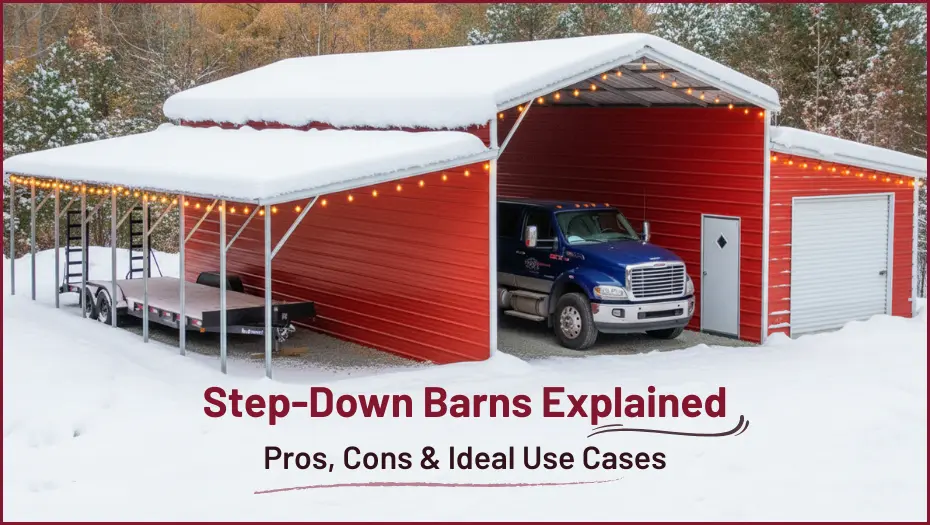
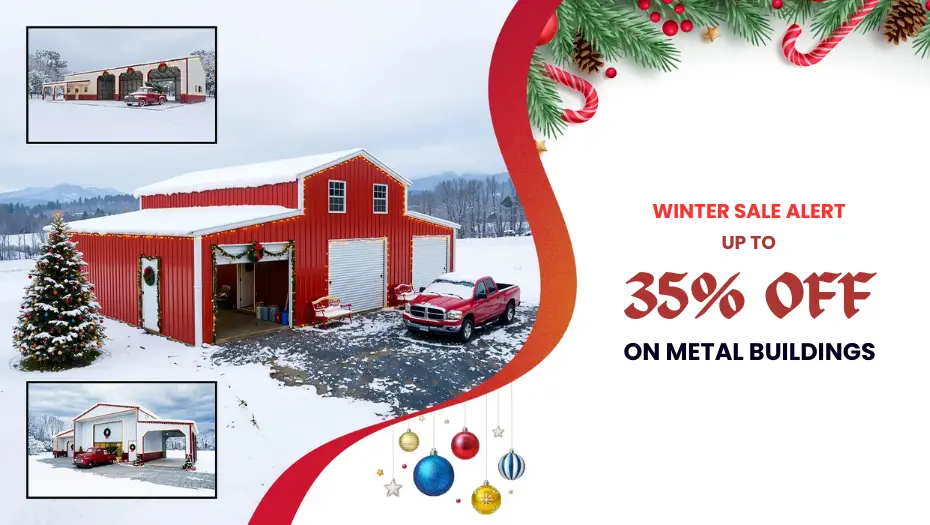
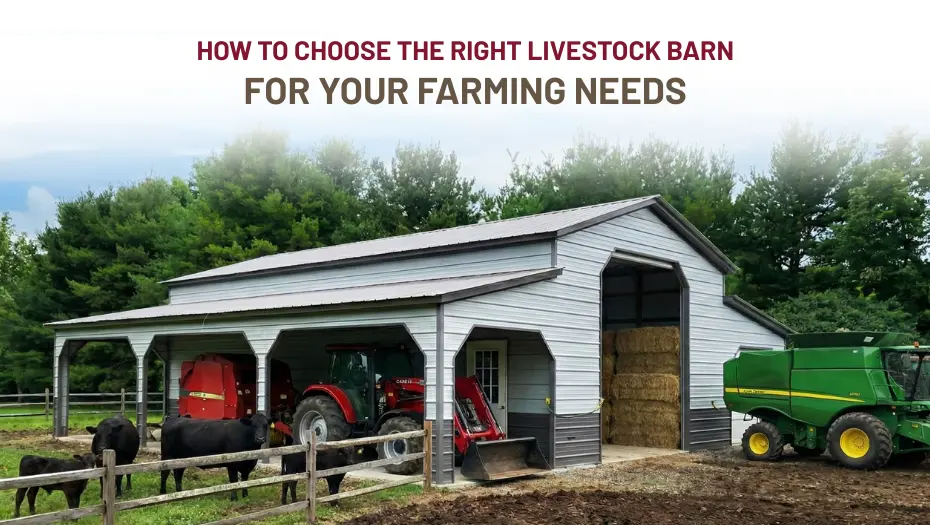
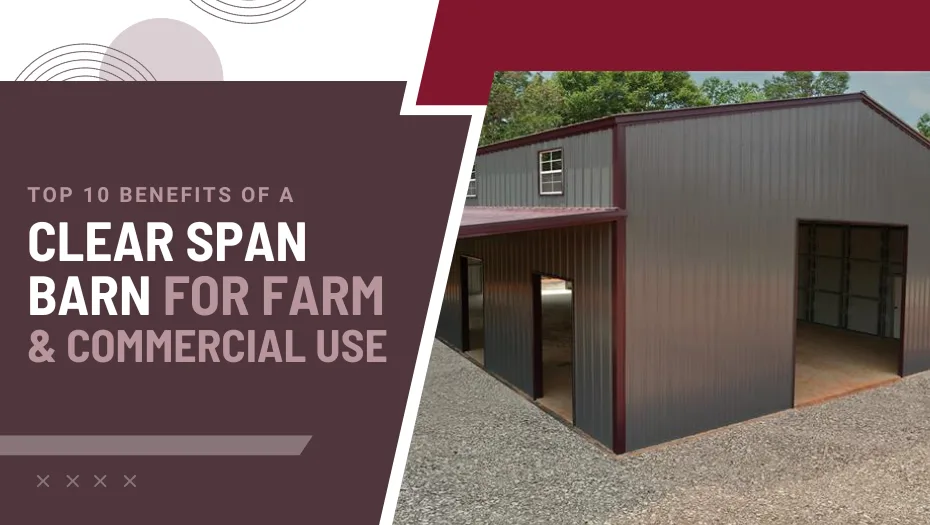


 Alabama AL
Alabama AL

 American Steel Carports Inc.
American Steel Carports Inc.